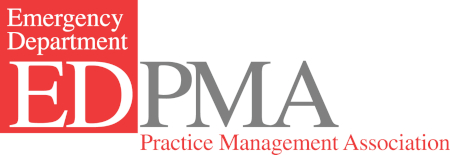
NSA I-Tact
If you are joining/unjoining a community, please email info@edpma.org so we can forward Outlook... View more
08.19.24 I-Tact Meeting Notes
-
08.19.24 I-Tact Meeting Notes
Meeting Summary for EDPMA Standing I-TACT Call
Quick recap
The group addressed various issues in Work Group A, including payer noncompliance, patient responsibility transfers, and the proposed $10,000 penalty. Lastly, they discussed the analysis of public use files, concerns about payers auto-downcoding engagements, and the issue of unfunded EMTALA obligations.
Next steps
Greg to analyze public use files data to determine frequency of $0 claims in IDR decisions
All members to ask their IDR teams if low dollar/zero dollar offers are affecting ultimate decision-making by IDREs
Patrick to share his merged Q1 and Q2 public use files with Greg for analysis
Alla to provide EDPMA with redacted award letters showing $0 offers and $1 offers from payers
EDPMA to consider developing a template for providers to rebut $0 offers in IDR disputes, with appropriate antitrust disclaimers
Summary
TMA II Case and Murphy Legislation Update
Ed highlighted the potential impact of the TMA II case beyond the No Surprises Act and the need for a joint letter to 13 IDREs and HHS regarding the Operations rule. Bob Jasak addressed issues with the perpetual cooling and final payment determination letters. Patrick then discussed various hot issues in Work Group A, including payer noncompliance, patient responsibility transfers, and untimely payment of IDR. He also provided updates on the Murphy legislation and the proposed $10,000 penalty, expressing concerns about the potential excessiveness of the daily penalty. Patrick noted that Murphy’s office was likely to proceed with the current language, giving the DOLl the same $10,000 civil monetary penalty authority.
Discussing IDRE Awards Enforcement and Challenges
Patrick discussed the potential for enforcement of violations and anticipated challenges from the Senate Help Committee due to their reluctance to grant such authority to the Secretary of Labor. He suggested introducing this issue in the first week of September, even if it meant revisiting it in a committee markup. Murphy’s office was preparing a myth fact document related to the legislation. Randy questioned the strategic implications of striking the CMP part, but Patrick clarified that the core focus was on potential patient harm. The group discussed the possibility of friendly amendments to their legislation regarding the enforcement of IDRE awards in federal court. Ed shared Brenna’s recommendation to ask Congress to amend the NSA to expressly authorize the enforcement of IDRE awards in federal court, but Patrick noted Murphy’s office was not interested in expanding the scope. The group also discussed the impact of the Loper Bright decision and the Jarkesy case, with Brenna stating a legislative solution would be necessary to resolve the split in authority and ensure an easy mechanism for enforcing IDRE awards.
Work Group, QPA and Senator Cassidy
The team discussed various topics including a work group and an issue with the QPA methodology. Greg highlighted the importance of a quick hit survey due by the end of August, emphasizing its potential to provide valuable data. Ed and Randy discussed their ongoing work on a letter from Senator Cassidy to various departments, awaiting further guidance from the Senator’s office. Lastly, they were waiting for Bob’s follow-up on the perpetual cooling issue and Paul was expected to explain a ‘0 offer case’ after resolving his audio issues.
Health Plan’s Final Offer Concerns
Paul raised concerns about a Health Plan’s final offer of $0 in a case, which could lead to potential recoups. Ed, Patrick, and Jennifer discussed the implications of such an award, including the possibility of the Health Plan seeking recoupment or requesting the initial amount back. The team also discussed the statutory requirements for refunds and overpayments, with Ed noting that there might not be a commercial statute specifically dealing with refunds. Randy proposed looking into public use files to understand how often a $0 claim was adjudicated by any IDRE. The team agreed on the potential seriousness of this issue and considered the need for further investigation.
Analyzing Public Use Files and Offers
Ed, Greg, Randy, Patrick, and Alla discussed the analysis of public use files, specifically focusing on claims and offers. Greg explained how to determine the final offer percentage of the health plan and how to identify zero pay offers. Patrick noted the presence of a QPA and offers tab with dollar amounts. Alla agreed to share two files with Ed, one redacted and another with a zero offer, and also promised to provide examples where providers lost and got a zero offer. Randy emphasized the importance of verifying the authority and reliability of the data before drawing conclusions.
Addressing Low-Ball Offers in IDR Process
Concerns were raised about payers auto-downcoding engagements and making low-ball offers to reset negotiation bars during the IDR process. This practice, often accompanied by insulting offers, was considered an abuse of process. EDPMA suggested categorizing these issues and compiling them quarterly. The group discussed the need to release the IDR operations rule early due to these behaviors. Alla did not see increased offer amounts negatively impacting decision-making, suggesting coaching for providers doing IDR instead. Data showed 160 out of thousands had a zero-award amount in Q3, which could discourage further IDR filings due to costs. An open question remained on whether low-ball offers disincentivize filings. Two issues were the discrepancy between allowed and paid amounts, with securing paid amounts being important, and perceived provider gaming during negotiations, which data did not reflect impacting determinations. Greg was assigned to examine specific files related to these issues.
Addressing Abusive Processes and Reporting
Ed, Randy, Kathryn, and EDPMA discussed the issue of abusive processes by plants and the need for quarterly reporting to Socio. Randy proposed a solution to present both a capstone meeting of routinely reported issues and a living document of ongoing problems to ensure no important issues are overlooked. The team also debated the impact of low-dollar offers on decision-making and the need to consult with IDR teams for their input. The discussion concluded with the agreement to bring visibility to these issues and consider their potential impact on Congress.
Addressing Unfunded Obligations and Providers’ Rebuttal Strategy
The team, including Randy, Ed, Kathryn, and Alla, discussed the issue of unfunded EMTALA obligations. They agreed that accepting no payment for these obligations was not a viable solution. Alla proposed a rebuttal script for providers to counteract zero offers, which Ed supported, but cautioned about potential antitrust issues. The team decided to encourage providers to use this approach, even if it didn’t lead to a change in statute. Lastly, the team rescheduled their next meeting and confirmed that no formal meeting was planned at ACEP, with work groups continuing their tasks.
Sorry, there were no replies found.
Log in to reply.
